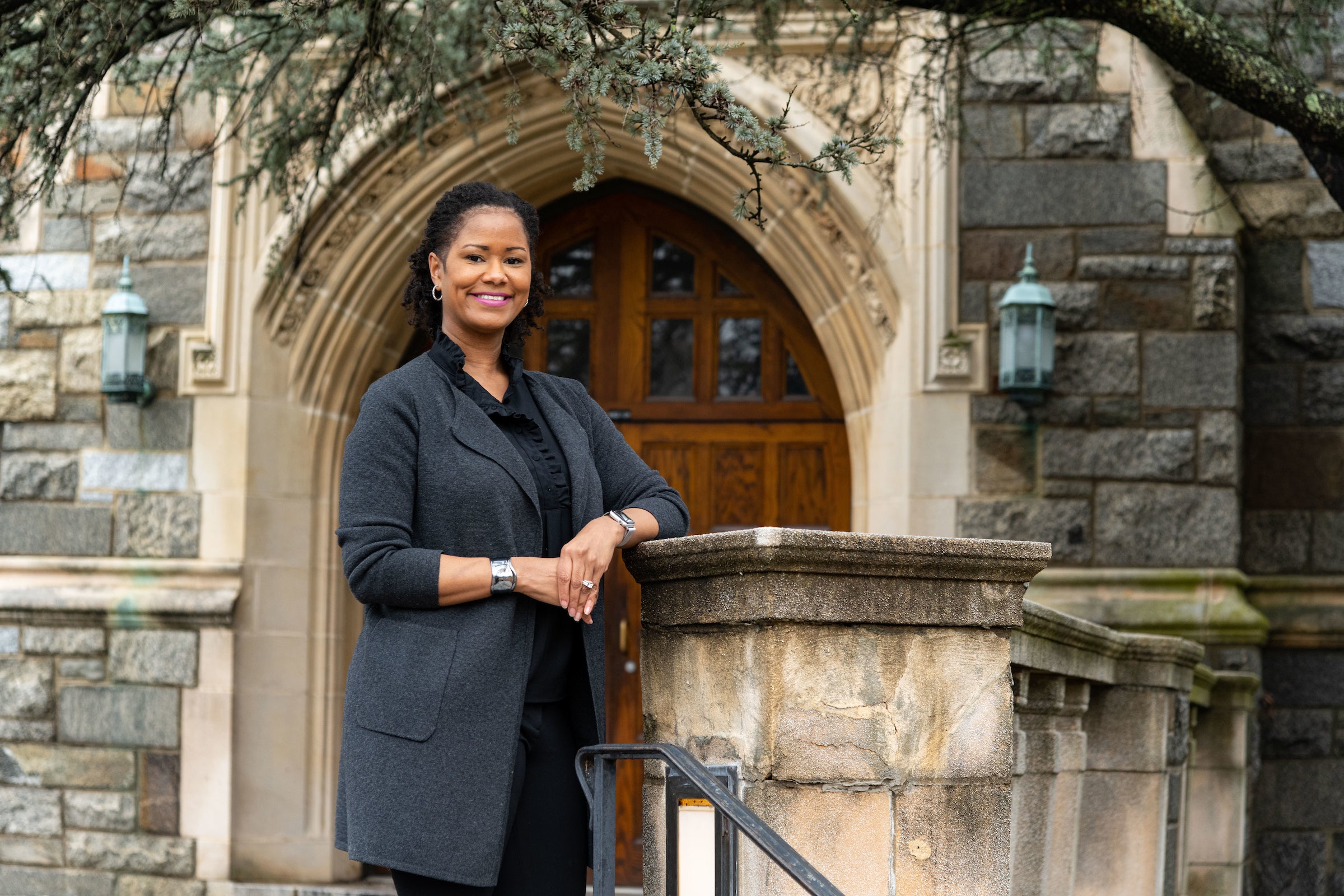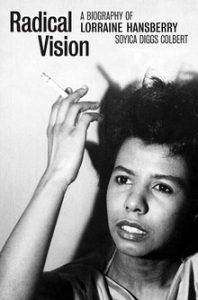Lorraine Hansberry Biography by Soyica Colbert Listed as a Must-Read in Oprah Magazine
Soyica Diggs Colbert, interim dean of the College and Idol Family Professor of African American Studies and Performing Arts, recently completed her latest book Radical Vision: A Biography of Lorraine Hansberry that sheds light on the profound impact that the writer, artist and activist had on culture and society. The biography, which was named as a top 20 book to read this spring by Oprah Daily, will be available for purchase on April 20 of this year.
Colbert began writing this book in 2016 after receiving a fellowship from the Schomburg Center for Research in Black Culture that granted her access to Hansberry’s archives. She had written about Hansberry in her previous book The African American Theatrical Body, but Colbert says that she did not fully grasp the breadth and depth of the author’s work until she began her research for Radical Vision.
“Hansberry is often only known for A Raisin in the Sun, but she authored several plays in addition to being an accomplished journalist who wrote periodicals for Black and queer publications,” says Colbert. “This work has taught me that it is important for us to reflect on what we know about even our most famous American writers and consider what else we could possibly learn about and from them.”
Beyond A Raisin in the Sun
Born in Chicago, Hansberry moved to New York in 1950 until her death in 1965. A Black, queer woman, she was simultaneously the darling of the American theater, but was also not widely considered an activist or intellectual.
In many ways, Hansberry was vastly ahead of her time, but was born during a period that was unwilling to appreciate her multifaceted talents.
“Hansberry really struggled with the perception that society had of her as a bored housewife, but nevertheless, she persisted with her work,” Colbert explains. “Another reason I’m grateful to her estate is because she left those portions of herself that the world wasn’t ready to see for us to discover at a later time. It underscored for me the power of archival research, which is something that I hope to impart to my students moving forward.”
Hasberry also lived during a period of immense global and domestic strife. People not only struggled with the possibility of world annihilation due to the Cold War, but also experienced the violence and turmoil associated with the Civil Rights Movement and with independence movements throughout the world.
However, Colbert notes that Hansberry firmly believed in finding possibility in what can seem like despairing times.
“When I look at the mass suffering of the pandemic and the heightened racialized violence that we’re living through, it’s instructive to have her work and her legacy as a way to negotiate these times,” Colbert says. “Hansberry believed that every human being had the capacity to transform their existence, which was apparent in her work as an artist, activist and spokesperson. That is something we hope to accomplish at Georgetown through the notions of cura personalis and using our education and knowledge to build a better and just world.”
Future Research
In addition to publishing her biography, Colbert also released a three-part podcast series to discuss playwright Erika Dickerson-Despenza’s audio play Shadow/Land about Hurricane Katrina and its subsequent diaspora. Colbert spoke with several different authors and scholars about the play and its implications, including Georgetown Law’s Sheila Foster.
The professor is also writing an essay on Black ecologies and is in the introductory phases of authoring a book about the friendship and collaboration between Hansberry, James Baldwin, and Nina Simone.
Colbert says that she wanted to write about this book as a continuation of a class she taught about the artists last fall.
“These figures are well-known artists in America and there is so much we don’t know about them because their vast archives are underexplored,” says Colbert. “Black artists in general are understudied and I think that by doing this work it provides an opportunity for us to tell new stories and to think about our relationships and the past in different ways.”

